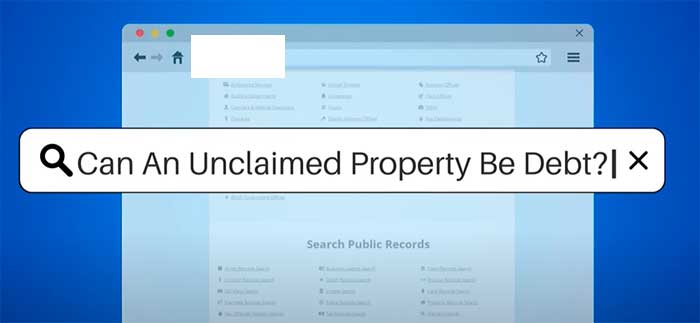
About Unclaimed Property
Unclaimed property consists of financial assets and physical items that have been left unclaimed by their owners for a significant period. Common types of unclaimed property include:
- Bank accounts and savings deposits
- Stocks, bonds, and mutual funds
- Insurance policy proceeds
- Uncashed checks (such as payroll or dividend checks)
- Contents of safe deposit boxes
- Physical items like jewelry and artwork
Each state has laws and regulations that govern how unclaimed property is handled and safeguarded until the rightful owner claims it.
Understanding Debt
Debt, on the other hand, refers to an obligation to repay borrowed money. This includes loans, credit card balances, mortgages, and other forms of credit. Debt requires regular payments over a period until the total amount owed is repaid. It involves:
- Borrowing agreements between lenders and borrowers
- Interest rates and repayment terms
- Legal obligations to repay the borrowed amount
Unlike unclaimed property, debt represents a financial liability rather than an asset.
Key Differences Between Unclaimed Property and Debt
While both unclaimed property and debt involve financial matters, they are fundamentally different:
- Nature: Unclaimed property is an asset waiting to be claimed, whereas debt is a liability that must be repaid.
- Ownership: Unclaimed property belongs to individuals who have lost contact with it, while debt is money owed by individuals to creditors.
- Legal Obligations: Unclaimed property does not have a repayment obligation, while debt requires the borrower to fulfill payment terms.
- Impact on Finances: Claiming unclaimed property can increase your financial assets, whereas debt affects your financial liabilities and credit score.
How to Check for Unclaimed Property
If you think you might have unclaimed property, it’s essential to check with your state’s unclaimed property office. For a step-by-step guide on finding unclaimed property, visit our comprehensive article How to Find Unclaimed Property | A Comprehensive Guide.
Can Unclaimed Property Offset Debt?
While unclaimed property and debt are different, there are scenarios where claiming unclaimed property might help offset personal debt. Here’s how:
- Additional Funds: Recovering unclaimed property can provide you with extra funds that can be used to pay down debt.
- Debt Repayment: Use the money from unclaimed assets to make larger payments on existing debt, potentially reducing interest costs and repayment time.
However, unclaimed property itself is not a form of debt repayment and does not directly impact your debt obligations unless you use the recovered assets to manage your debt.
Consult State Regulations
Unclaimed property regulations can vary by state, so it’s important to understand the specific rules that apply to you. Always consult your state’s unclaimed property office for detailed information on how to claim assets and any legal implications involved.
For more information on unclaimed property, visit your state’s official unclaimed property website or How to Find Unclaimed Property | A Comprehensive Guide.
